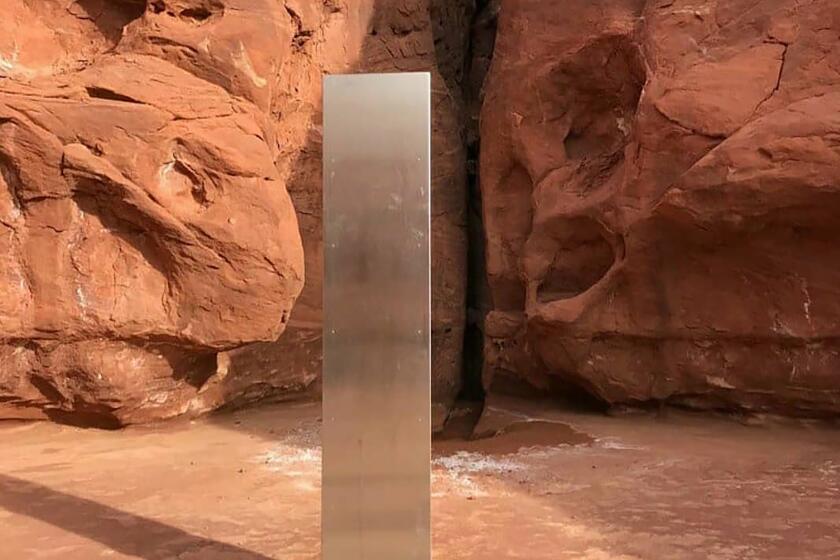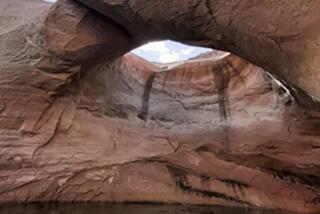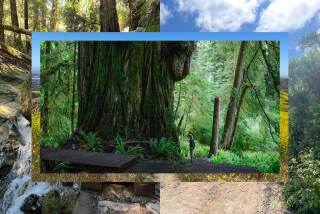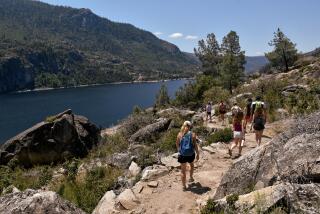Mysterious monolith on California’s Central Coast disappears
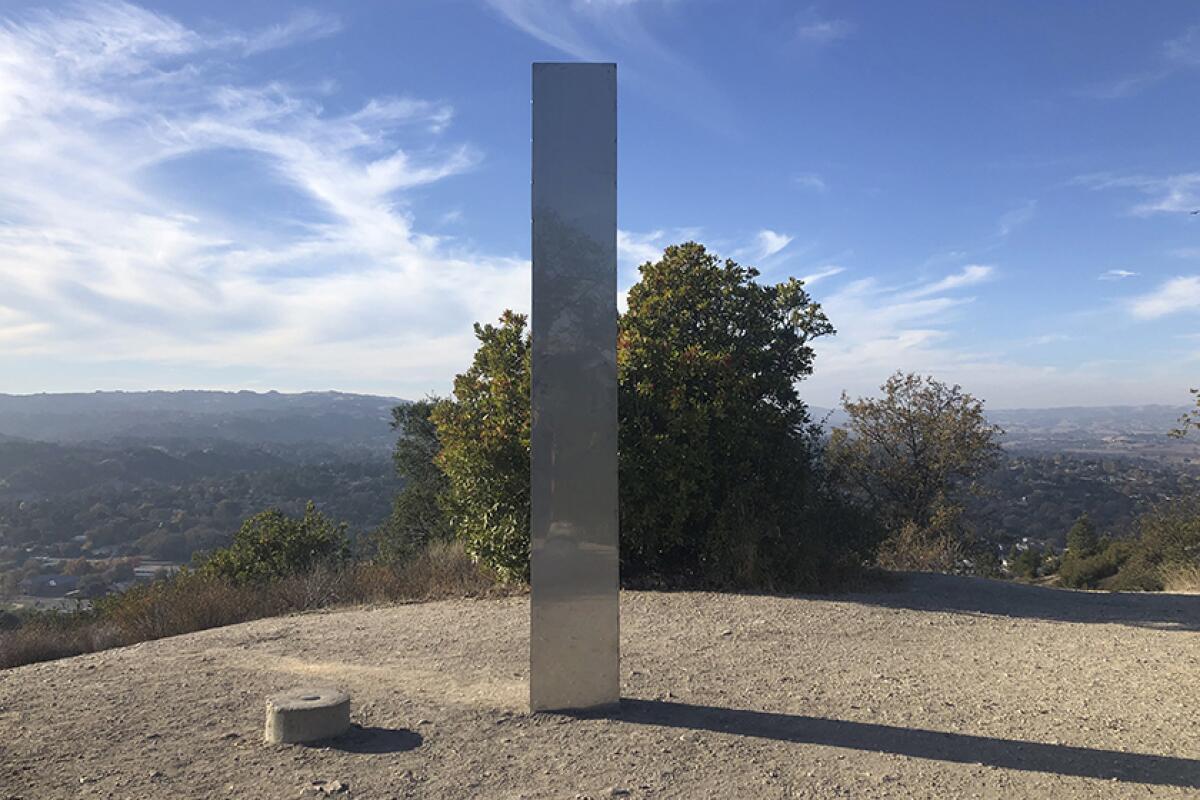
Days after the discovery and swift disappearance of two shining metal monoliths half a world apart, another towering structure has popped up and then quickly vanished, this time from the pinnacle of a trail in California.
After photos were posted on social media, the tall, silver metallic structure drew hikers to the top of the Pine Mountain trail at a park in Atascadero, halfway between San Francisco and Los Angeles, KEYT-TV reported Wednesday.
The three-sided, 10-foot-tall, 200-pound monolith was similar to two others discovered recently in the Utah desert and in Romania. Like those structures, the origin of the California edifice is also unknown.
But by Thursday, the California monolith had vanished, apparently torn down by a group of young men that traveled five hours from the south to remove it, the city of Atascadero said in a Facebook post.
Video posted online showed young men wearing night-vision goggles toppling what appears to be the monolith before dawn while chanting, “Christ is king” and “America first.” One man also is heard saying to the camera: “We don’t want illegal aliens from Mexico or outer space.”
Deep in the Mars-like landscape of Utah’s red-rock desert lies a mystery: a gleaming metal monolith in one of the most remote parts of the state.
The men replaced the structure with a wooden cross, which also disappeared. All that was left Thursday of the monolith were few pieces of supporting rebar.
Police were reviewing the video, the Tribune of San Luis Obispo County reported.
The destruction wasn’t appreciated by locals.
“We are upset that these young men felt the need to drive five hours to come into our community and vandalize the monolith,” Mayor Heather Moreno said in a news release. “The monolith was something unique and fun in an otherwise stressful time.”
“Bummer,” Matt Cadaret, a gravedigger at a nearby cemetery, told the San Francisco Chronicle. He had planned to hike up to see the structure.
“It’s too bad it’s gone,” he said. “People were real excited about it. Anything that gets people excited is a good thing.”
Another monolith spotted two weeks ago in Utah’s otherworldly red-rock country became a beacon of fascination around the world as it evoked the movie “2001: A Space Odyssey” and drew hundreds of people to the remote spot.
Two extreme sports athletes said they were part of a group that tore down the hollow metal structure because they were worried about the damage the droves of visitors were causing to the relatively untouched spot. Officials said the visitors flattened plants with their cars and left behind human waste.
A structure that appeared last week in Romania is also gone.
The Utah creation evoked famous land-art pieces that dot the West. Robert Smithson’s “Spiral Jetty” is an earthwork along the Great Salt Lake and Nancy Holt’s “Sun Tunnels” are huge concrete pieces in the desert.
Like those pieces, the monolith was fascinating in part because of its context in the landscape, said Whitney Tassie, a curator of modern and contemporary art at the Utah Museum of Fine Arts.
“TA big, big part of land art in general is this idea of an experience, of a journey,” she said.
The intense social media reaction to the monolith against the backdrop of the punishing pandemic, along with the quick disappearance of the piece, has become a part of its story, she said. Police have said the dismantling may not be illegal since no one has claimed the structure as their property.
The still-anonymous creator of the Utah monument did not follow steps taken by land artists of the 1970s to secure permission to make their works. Visitation to those remote sites is now managed and overseen to avoid too much stress on the environment. Federal and state officials in Utah had also expressed concern about the area around the monolith being overrun.
“It’s good to think about our relationship with the earth, which is ultimately what these sorts of projects do,” Tassie said. “Man’s impact on the environment front and center.”
More to Read
Sign up for Essential California
The most important California stories and recommendations in your inbox every morning.
You may occasionally receive promotional content from the Los Angeles Times.
